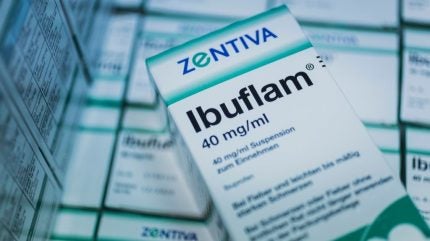
The (recast) Urban Wastewater Treatment Directive (UWWTD) was formally adopted by the EU Council on 5 November, but pharmaceutical manufacturer Zentiva has raised concerns that new financial burdens will lead to medical shortages.
In a response to the directive, Zentiva CEO Steffen Saltofte said: “It is the elderly man picking up his heart medication in a rural pharmacy, the newly diagnosed diabetic patient whom we help to mitigate the risks of the disease, or the mother needing fever medicine for her toddler who ultimately bears the consequences of the new Urban Waste Water Treatment Directive.”

Discover B2B Marketing That Performs
Combine business intelligence and editorial excellence to reach engaged professionals across 36 leading media platforms.
The UWWTD introduces extended producer responsibility (EPR) for pharmaceutical and cosmetics companies, requiring them to pay for the removal of micropollutants from effluent water. Zentiva pointed to estimations that, under the UWWTD, the new system will cost companies between €5bn and €11bn each year, which it said would result in a shortage of medicines and unsustainable healthcare systems across Europe.
It raised particular concern for the generic medicines sector, which it said represents 70% of prescribed medicines in Europe, and 90% of critical medicines while accounting for only 19% of the market value.
This was a point raised earlier in the year by Medicines for Europe, which expressed “deep concern” in a statement about the EPR approach, calling it “profoundly unfair for generic medicine manufacturers”. It pointed to the example of Tamoxifen, a cancer medicine on the Union list of critical medicines, sold by generic medicine manufacturers for less than €3/month (€8.80/three months).
Tamoxifen producers will pay EPR fees because of its popularity, but Medicines for Europe pointed out that “the highest priced orphan drugs in Europe, which sell for around €20,000-€30,000/month, will not contribute to the EPR fees because of their low volumes”. This is because the UWWTD does not require producers to pay the EPR obligation if they place below two tonnes of product on the market each year.

US Tariffs are shifting - will you react or anticipate?
Don’t let policy changes catch you off guard. Stay proactive with real-time data and expert analysis.
By GlobalDataFinancial feasibility aside, the new directive has also led to concerns around “free riders” – non-affected pharmaceutical manufacturers and companies in other industrial sectors whose micropollutant removal will be funded by companies with already smaller profit margins. The financial squeeze for generic medicine providers could result in fewer available medicines for European patients. As a result, Zentiva has called for “a comprehensive review” of the UWWTD.
Saltofte added: “We all remember the situation with medicine shortages not that long time ago caused by the pandemics, the war in Ukraine, and other factors. Genuine hope for a self-sufficient Europe emerged as discussions about supporting domestic manufacturers unfolded. Yet, this directive now risks undoing that progress, standing in the way of Europe’s path to healthcare resilience and sustainability. This isn’t the way forward.”
The formal adoption of the recast UWWTD marks the end of the legislative procedure. Once signed and published in the Official Journal of the EU, member states will have up to 31 months to transpose the directive.




